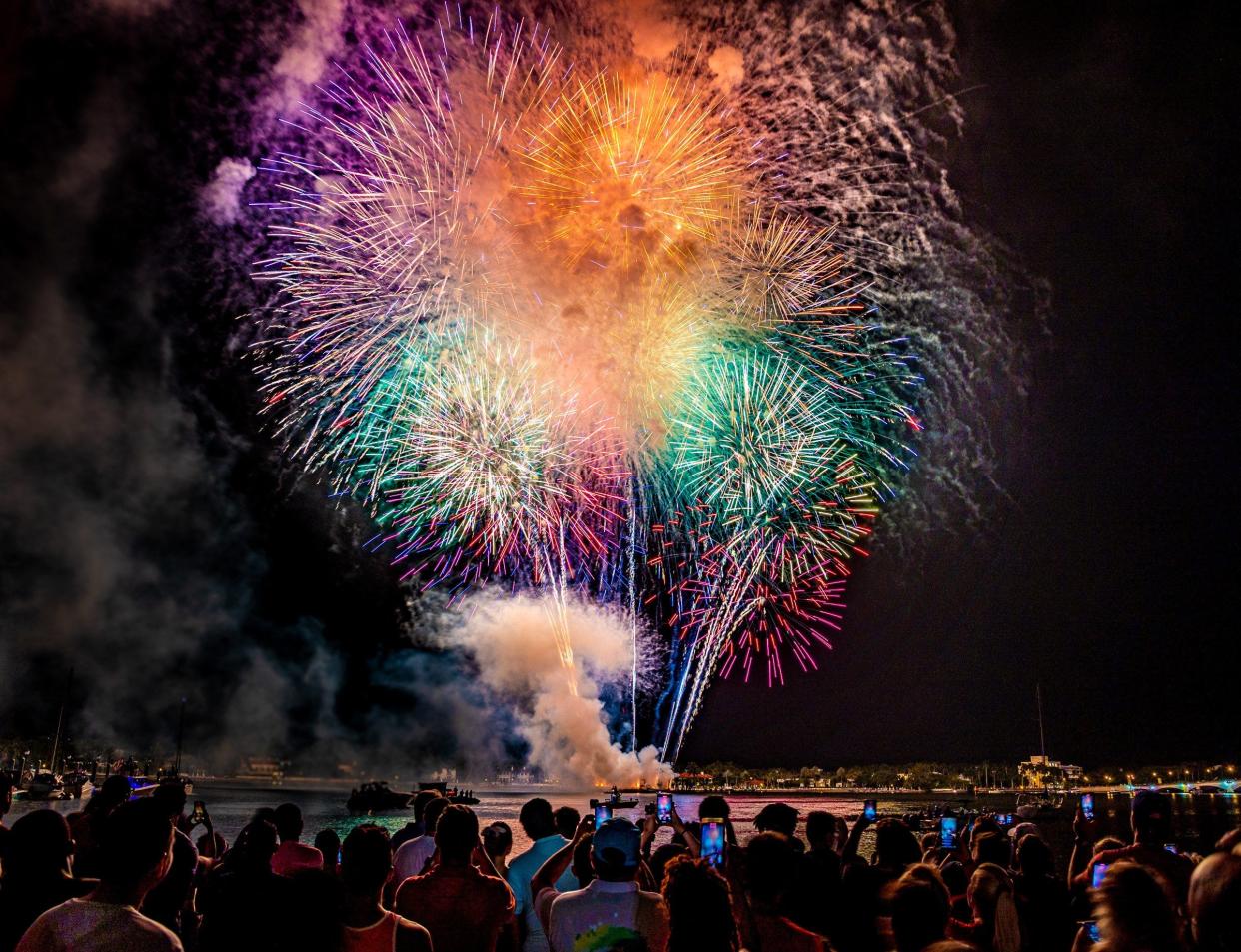How Independence Day landed on July 4

- Oops!Something went wrong.Please try again later.
Q. What event are we actually celebrating on July 4?
A. Independence Day, or July 4, commemorates the adoption of the Declaration of Independence by the 13 American colonies that sought to separate from Great Britain. The Constitutional Congress actually passed the Lee resolution and made the decision to become independent on July 2, 1776, declaring on that date that, “these United Colonies are, and of right ought to be, free and independent states.”

At the time, Founding Father and future President of the United States John Adams thought that July 2 would become a national day of celebration. In a letter to his wife, Abigail, Adams wrote, “The Second Day of July 1776, will be the most memorable Epocha, in the History of America. I am apt to believe that it will be celebrated, by succeeding Generations, as the great anniversary Festival.”
While the Continental Congress made a decree on July 2, it was not until two days later, aJuly 4, that the body formally adopted what we know today as the Declaration of Independence. While John Adams was slightly off on which date was important, he did make a fairly accurate prediction about how Americans would celebrate independence. Adams wrote, “It ought to be solemnized with Pomp and Parade, with Shews, Games, Sports, Guns, Bells, Bonfires and Illuminations from one End of this Continent to the other from this Time forward forever more.”
What makes the prediction particularly impressive is that it was made during the early stages of the Revolutionary War, where victory was by no means certain or easy. Adams himself knew that it would be a difficult path to walk. He wrote, “I am well aware of the Toil and Blood and Treasure, that it will cost Us to maintain this Declaration, and support and defend these States.” The Revolutionary War lasted until 1783, and thousands of Americans were killed in combat. Many more died from disease or as prisoners of war. George Washington himself observed that the “unparalleled perseverance of the Armies of the United States, through almost every possible suffering and discouragement, for the space of eight long years, was little short of a standing Miracle.”
While Independence Day has been celebrated since the 18th century, it was not until 1941 that it became an official federal holiday. It is celebrated, much as predicted, with a fair amount of pomp and parades. Some celebrate with reenactments of the signing of the Declaration of Independence, or with exhibitions and music. However, the 4th of July has become known for fireworks. Unfortunately, the use of explosive devices by untrained individuals has caused injuries, leading to some cities and states to limit or even ban their use unless supervised by professionals.
If you enjoy fireworks, I would suggest that you leave it to the experts. Many cities host events, and if you are able to go, there is nothing quite like the fireworks show on the National Mall in Washington, D.C. I do believe John Adams would approve.
Kevin Wagner is a noted constitutional scholar and political science professor at Florida Atlantic University. The answers provided do not necessarily represent the views of the university. If you have a question about how American government and politics work, email him at kwagne15@fau.edu. You can read past columns here: https://www.palmbeachpost.com/search/?q=kevin+wagner.
This article originally appeared on Palm Beach Post: How July 4 came to be Independence Day

